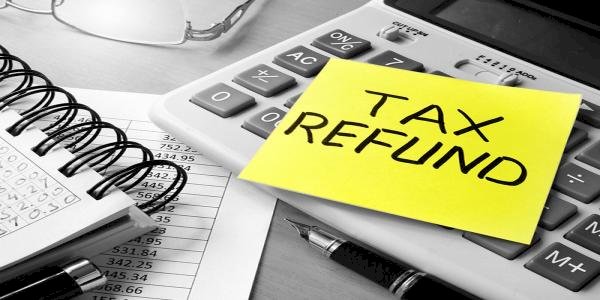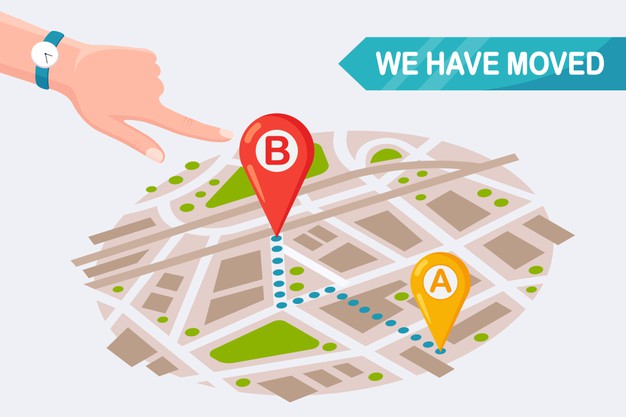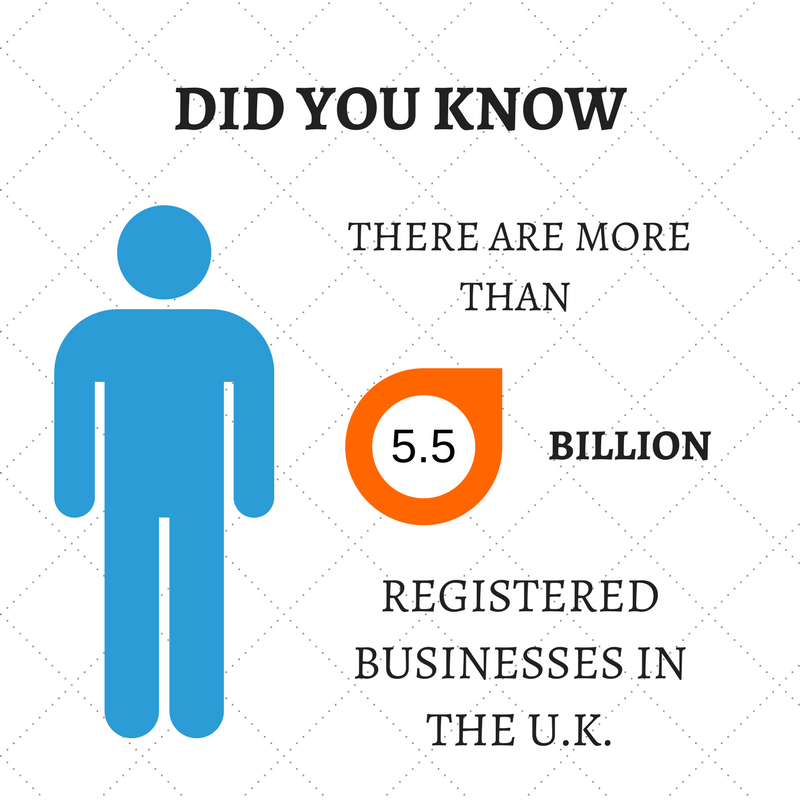How to register a business
Registering a business is informing the local tax office that you are working for yourself and therefore responsible for your own tax.

Registering your business makes it official and makes it legal as well. To register a new business, there are a few things you need to think about beforehand.
- Which structure to choose – Self-employed, limited company etc
- Business Name – The name you will use to register your business
- Business Address – The address you will provide to register your business
When starting a new business, the most difficult decision is often which structure to run and register your business.
With so many different terms such as self-employed, sole trader, limited company and limited partnership, it can be hard to determine what they all mean and which one is right for you. We will take a look into each one to determine which one is the right one for your new business venture.
WHY IT’S IMPORTANT
At this stage, you may be eager to jump in and get started with your new business. However, it’s important to register your business in time in order to stay on the right side of the law. The taxman is going to want to collect payment on a portion of your profit. So you need to let them know you have started a business.
The two most popular structures to register your business are a sole trader or a limited company.
Here is a quick comparison chart showing the pros and cons of each. More information about the meaning and responsibilities for each structure is below.
SELF EMPLOYED
Pros and Cons- PROS
- Quick and easy to set up
- Easy accounting process
- Business money is your money
- Use your personal bank account
- CONS
- Personal liability
- Must raise money yourself
- Some companies won’t work with you
- Pay more tax when earning over basic tax threshold
LIMITED COMPANY
Pros and Cons- PROS
- Protection from bankruptcy
- Lower taxes over basic threshold
- Increased credibility
- Can sell shares to make money
- CONS
- More complicated accounts
- Need a company bank account
- Need to assign shareholders directors
- Pay corporation tax
- Must declare any money being withdrawn as salary dividends or loan
SELF EMPLOYED
Someone that is self-employed works for themselves either as the owner of a business or by freelancing.
Being self-employed means that you either sell your own goods and services or run a business. You will be classed as self-employed if you take responsibility for the success and failure of a business.
You can check specific criteria on the HMRC website to see if you qualify as self-employed.
Even if you have a job and are employed by someone, you can still be registered as self-employed at the same time if you are running your business alongside your current job.

LIMITED COMPANY
A limited company is a separate legal entity from yourself.
This means the company stands on its own and is not in any way linked to your personal income. This is beneficial if you ever encounter someone that wants to sue you for damages or loss. Because the business is not attached to your personal accounts, any debts you incur will need to be recovered from or through the business.
Being self-employed, you will need to pay yourself a salary. Because the business’s income is not classed as yours but is classed as belonging to the company, you get paid by paying yourself a salary. Determining what that salary should be can be discussed with an accountant.
When running a limited company, you will need to open a separate business bank account. Some business bank accounts have fees and withdrawal limits attached to them.
Doing a comparison search first will help you make the best choice as to which one is for you. These types of accounts will be subject to a credit check.
If your credit is not in great standing at the moment, then you can still use a personal bank account; however, it needs to be separate from your personal income, so you may need to open a new current account.
You will not get the same benefits, savings, interest, and rewards as you would from a business bank account, but all your transactions will be clearly displayed, making your accounting and bookkeeping easier.
As self-employment comes with more responsibilities, it is recommended you hire an accountant. An accountant can take care of all of your tax-related issues on your behalf.
The cost of having a good accountant is usually recovered by the savings that they make you.
ACCOUNTANT
An accountant is a professional that is trained to keep up to date and manage your tax affairs on your behalf. An accountant is going to help you to cover these roles and responsibilities;
- Personal Tax return
- Corporation tax return
- Annual return
- Director’s payroll
- Dividend vouchers
- Full statutory limited company accounts for HM Revenue & Customs
Abbreviated statutory limited company accounts for Companies House
Running a limited company can add credibility over a self-employed business.
Some businesses prefer, and some also insist that they will only do business with a limited company. When working business to business, you may find that other limited companies prefer and feel more comfortable working with other limited companies. You will also find councils and other local authorities choose to work with limited companies as they appear more professional and secure.
LIMITED COMPANY
A limited company is a separate legal entity from yourself.
This means the company stands on its own and is not in any way linked to your personal income. This is beneficial if you ever encounter someone that wants to sue you for damages or loss. Because the business is not attached to your personal accounts, any debts which you incur will need to be recovered from or through the business.
Being self-employed means, you need to pay yourself a salary. Because the business’s income is not classed as yours but is classed as belonging to the company, you get paid by paying yourself a salary. Determining what that salary should be can be discussed with an accountant.
When running a limited company, you will need to open a separate business bank account. Some business bank accounts have fees and withdrawal limits attached to them.
Doing a comparison search first will help you make the best choice as to which one is for you. These types of accounts will be subject to a credit check.
If your credit is not in great standing at the moment, then you can still use a personal bank account; however, it needs to be separate from your personal income, so you may need to open a new current account.
You will not get the same benefits, savings, interest, and rewards as you would from a business bank account, but all your transactions will be clearly displayed, making your accounting and bookkeeping easier.
As self-employment comes with more responsibilities, it is recommended you hire an accountant. An accountant can take care of all of your tax-related issues on your behalf.
The cost of having a good accountant is usually recovered by the savings that they make you.
An accountant is a professional that is trained to keep up to date and manage your tax affairs on your behalf. An accountant is going to help you to cover these roles and responsibilities;
- Personal Tax return
- Corporation tax return
- Annual return
- Director’s payroll
- Dividend vouchers
- Full statutory limited company accounts for HM Revenue & Customs
Abbreviated statutory limited company accounts for Companies House
Running a limited company can add credibility over a self-employed business.
Some businesses prefer, and some also insist that they will only do business with a limited company. When working business to business, you may find that other limited companies prefer and feel more comfortable working with other limited companies. You will also find councils and other local authorities choose to work with limited companies as they appear more professional and secure.
SOLE TRADER
A sole trader is an individual who runs and owns their own business. It means that you are self-employed.

You can refer to yourself as a sole trader if you as an individual are responsible for the company and are self-employed.
It does not have to mean that they are the only individual working for the company. A sole trader can employ other staff, but they are the only individual responsible for running the company.
This is the way most people decide to run their business. If you look around, you will see plenty of ltd companies. If you do your research, you will find that many of these companies started as self-employed sole traders. Starting out as a sole trader will ease you into the process of becoming a limited company in the future.
Being self-employed not only provides you with the freedom to make and determine your own worth, but it also allows you to have access to your money. This is because the business money is yours.
One of the main responsibilities that could get overlooked as a sole trader is that you have liability for the business as the company is attached to you. This means if your company has a debt, this debt becomes your personal debt and puts your assets at risk.
You can protect yourself from such risks by taking out an insurance policy for your business. This will cover you in the event that someone wants to sue you for damages or loss etc.
To keep up to date with the demands of being self-employed, use bookkeeping software. Bookkeeping software allows you to upload your invoices, receipts and keep a record of your expenditure. This will make the process much easier when it comes to filing your annual tax return.
As a sole trader, your responsibilities of being self-employed includes:
- Filing tax return once a year
- Keeping records of receipts, invoices and expenditure
- Paying % tax on profit
SUMMARY OF SOLE TRADER
- As a sole trader, you will pay more tax than if you register as a limited company. Once your business starts to see steady growth and you are making more than the basic tax threshold each year, you should make the change towards becoming a limited company in order to make tax savings of £1500+ a year.
- As a sole trader, you will be personally responsible for any losses the business makes
- As a sole trader, you get to keep any profits after you have paid tax
LIMITED LIABILITY PARTNERSHIP (LLP)
A business owned by more than one person
A partnership has more than one owner. All partners own a specific percentage of the profits and liabilities. They pay tax on that percentage. Each partners share of the profits counts as their income.

BUSINESS PARTNERSHIP
A business partnership is also known as a joint partnership. It is when two or more people go into business together and share responsibility for running the company.
In a business partnership, all partners share personal responsibility for the business. This includes losses and expenses.
Partners share the profits from the business, and each partner pays tax on their portion.
Work on forming a solid relationship with your business partner before making any commitments because, in a business partnership, you are responsible for what your partner does, and in some cases, what your partner fails to do.
What this means is that if your partner makes financial decisions without your knowledge and those decisions then result in debt. You become personally liable. When they say personally liable, this does not only mean they can recover the debt on your savings from the business. It also means they can recover the debt from your personal assets such as your car or home to cover any outstanding amount.
This is why having a strong business relationship in place beforehand is so important.
To make sure all partners are clear on the business roles, duties, and responsibilities, they should draw up a written agreement and sign it. Your written agreement should include the length of the partnership, whether for a single project or the duration of the business.
Joint ventures between partners who share the same goals and mission can be really successful. Maintaining communication and assessing risks will make things a lot smoother when you are up and running.
Working with someone whose skill sets can complement yours can be just what is needed in some situations to get your business going. You also teach each other new skills.
WHICH OPTION SHOULD I USE TO REGISTER MY BUSINESS
If your earning over the basic tax threshold, being a limited company will save you tax. You will need an accountant for your small business to take care of this.
If you want to keep things simple, go self-employed.
If you carry out high-risk work where mistakes could cost someone thousands of pounds, being a limited company will protect your personal assets.
If you work with a partner, form a joint venture and register as a business partnership.
BUSINESS NAME
You need a business name to register your business. Before choosing a name for your business, you need to make sure the name has not been taken by someone else. In the U.K., this can be done by checking on the company’s house website to find out if someone is already operating a business under that name.

WHAT ADDRESS SHOULD I USE TO REGISTER MY BUSINESS
You will also need an address. This is the address you are going to give as your trading address. Sometimes this information could be made public. This is especially true when operating as a limited company, as the majority of your business information is public.
If you are working from home, you may not want to provide your home address for the whole world to see. In this case, you will need a virtual address to use in place of your home address. A virtual address is an address that can be used to receive letters relating to tax and also relating to your business. This address can be selected to reflect your location, so for example, they are available in different countries, towns and states.
The reason they need an address is so they can contact you when it is time for your tax returns etc. It is your duty to keep this information up to date as it could result in you missing tax deadlines and incurring fees as you won’t receive your notifications.
HOW TO REGISTER A BUSINESS
To register as a sole trader or a business partnership
To register a business in the U.K, you can do so in some cases online or by phone by contacting HMRC.
If you are outside of the U.K., contact your local tax office.
To register a limited company.
This process can be completed online. You will need to go to the Companies House website, input your information, and pay a small fee to register your business.


To discuss how one of our virtual assistants can help your business.
As with most situations there are pros and cons to each there is no right or wrong way to register a business it is all about what is best for you.

